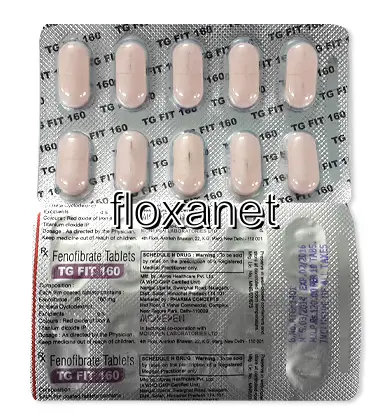| Package | Dosage | Price | Price per Dose | |
|---|---|---|---|---|
| Dosage: 160mg | ||||
| 360 pill | 160mg | CAD873.03 | CAD2.42 | |
| 180 pill | 160mg | CAD452.60 | CAD2.52 | |
| 120 pill | 160mg | CAD308.67 | CAD2.58 | |
| 90 pill | 160mg | CAD244.28 | CAD2.71 | |
| 60 pill | 160mg | CAD170.42 | CAD2.84 | |
| 30 pill | 160mg | CAD90.88 | CAD3.03 | |
| Dosage: 200mg | ||||
| 360 pill | 200mg | CAD1,193.08 | CAD3.31 | |
| 180 pill | 200mg | CAD621.15 | CAD3.45 | |
| 120 pill | 200mg | CAD422.30 | CAD3.52 | |
| 90 pill | 200mg | CAD333.29 | CAD3.69 | |
| 60 pill | 200mg | CAD232.92 | CAD3.88 | |
| 30 pill | 200mg | CAD124.97 | CAD4.15 | |

Fenofibrate Description
Overview of Fenofibrate
Fenofibrate is a medication primarily used to manage high cholesterol and triglyceride levels in the blood. It belongs to the class of drugs known as fibric acid derivatives. The main goal of this medication is to reduce the risk of cardiovascular diseases by improving the lipid profile. Patients often use Fenofibrate when lifestyle changes like diet and exercise are not enough to control their lipid levels effectively.
How Fenofibrate Works
Fenofibrate acts by activating a specific receptor in the body called peroxisome proliferator-activated receptor alpha (PPAR-alpha). Once activated, this receptor influences the expression of genes involved in lipid metabolism. As a result, Fenofibrate helps decrease the production of triglycerides and LDL (bad cholesterol) while simultaneously increasing HDL (good cholesterol). This multifaceted action supports healthier blood lipid levels and helps prevent the formation of fatty deposits in arteries.
Benefits of Using Fenofibrate
Many patients experience significant improvements in their lipid profiles after using Fenofibrate. It is particularly effective in lowering triglyceride levels, which is crucial for individuals with hypertriglyceridemia. The medication also tends to raise HDL cholesterol, contributing to better cardiovascular health. Additionally, Fenofibrate may help reduce the risk of pancreatitis associated with very high triglyceride levels. For patients with mixed dyslipidemia, it can serve as an important part of a comprehensive treatment plan.
Possible Side Effects
Like all medications, Fenofibrate may cause side effects in some users. Common adverse reactions include gastrointestinal symptoms such as stomach pain, nausea, or diarrhea. Some people may experience muscle pain or weakness, which could indicate a rare but serious condition called rhabdomyolysis. Elevated liver enzymes have also been reported, so liver function needs to be monitored during treatment. Allergic reactions, including rash or swelling, are uncommon but require immediate medical attention.
Precautions and Considerations
Before starting Fenofibrate, it is essential to inform your healthcare provider about any existing liver or kidney problems. It is also important to discuss other medications you are taking, as drug interactions may occur. For instance, combining Fenofibrate with certain statins can increase the risk of muscle-related side effects. Regular blood tests are necessary to monitor lipid levels, liver function, and kidney health during therapy. Pregnant or breastfeeding women should consult their doctor before using this medication to assess the potential benefits and risks.
Usage Instructions
Fenofibrate is usually taken orally once daily, with or without food. The dosage depends on the individual's condition and response to treatment. It is crucial to follow the healthcare provider’s instructions precisely and not to alter the dose without medical advice. Consistency in taking the medication enhances its effectiveness. Alongside medication, maintaining a healthy diet and exercising regularly can further improve lipid levels and overall cardiovascular health.
Conclusion
Fenofibrate is a well-established medication for managing abnormal lipid levels. Its ability to lower triglycerides and raise HDL cholesterol makes it valuable in reducing cardiovascular risk. However, it requires careful monitoring and adherence to prescribed instructions to minimize side effects. When used appropriately, Fenofibrate can be a key component of a comprehensive approach to improving heart health and preventing related complications.
